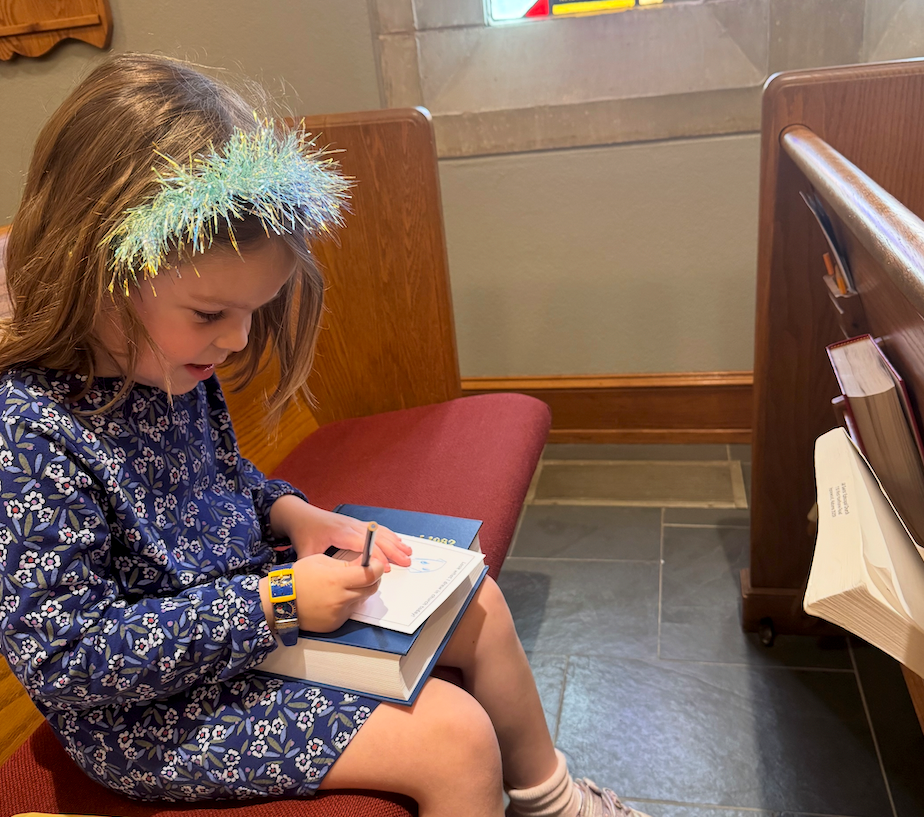In Praise of Martha
One of the side effects of the Covid-19 pandemic has been what economists have
named the Great Resignation. In the last year and a half, the so-called “quit rate” soared as
people left their jobs for a variety of different reasons. Some left out of fear of illness, some
because of long-standing dissatisfaction with their working conditions. Some realized their
time was better spent outside of paid employment. Some saw a chance for higher pay or
advancement in a labor market in which unemployment is very low. The result is that, as the
economy returns to a new normal, it certainly feels like there aren’t enough workers to provide
the goods and services we want and need in the manner to which we are accustomed. The
employees who do show up are often spread very thin and overburdened, which makes them
want to quit, too.
Non-profits and churches are also feeling the pinch as a shortage of volunteers makes it
difficult to carry out business as usual. Even here at All Saints we’ve be struggling to get enough
acolytes, readers, lemonade volunteers, and ushers. Some of this is typical for summer. Some
of it is the pent-up demand for travel, and some of it is that people have gotten out of the habit
of coming to church during the pandemic. This isn’t just true of our church. Seth just returned
from General Convention and can attest to the fact that most churches are facing a similar
challenge as we emerge from the pandemic.
If you work in church ministry long enough, whether as paid staff or as a volunteer, at
some point you will feel like Martha in today’s Gospel reading. Jesus is teaching in her home in
the town of Bethany. Martha sees her sister sitting and listening to him and complains, “Lord,
do you not care that my sister has left me to do all the work by myself? Tell her then to help
me.” Now before we get to Jesus’ response to her, let’s give Martha some credit. We don’t
know what she was busy with or why she was worried and distracted. But we can assume she
was the one providing the food, cleaning up the house, and making sure her guests felt at
home. She was attending to the practical matters of the day. Those things are important.
Somebody’s got to sweep the floor, take out the trash, and do the laundry.
All of us spend a good portion of our day attending to the mundane tasks that keep
things running smoothly and make it possible to achieve higher goals. Like Martha we all want
to feel appreciated. And no one wants to feel like they have to do it all. We want help. In fact,
that’s one of the simplest and most frequent prayers. It’s one of the three basic prayers author
Ann Lamott identifies in her charming book on that subject called Help, Thanks, Wow!
Think of how often you have prayed some version of “Help me, Lord.” The Bible and
Prayer Book are full of similar expressions: “Lord have mercy, Lord hear my prayer, or save me,
Lord.” Who hasn’t felt like Martha in your work at home, at the office, or at school? Feeling
that no one will help you, that you’re all alone in your struggle? Who hasn’t felt worried and
distracted by many things just like Martha did that day when Jesus was at her house? We’ve all
been there. We feel you, Martha.
The truth is that as individual Christians, we are called to be like Martha, not necessarily
worrying and complaining, but caring for others in practical ways. And as a church, we are
called to be like Martha as well. A church that never attended to the practical needs of its
community or that never provided tangible forms of hospitality wouldn’t be much of a church
at all. Jesus was fully human and cared about human needs. And the church that bears his
name has the honor of caring for the human beings, those within our community as well as
those beyond our walls. That calling involves the stewardship of human resources.
In the fall we typically address the stewardship of money. But equally important is the
stewardship of time and talent. The church depends on its members to give of themselves in
practical ways to carry on the ministry of Christ in our own time and place. Sometimes that
means doing this less glamorous work of mixing the lemonade, washing the acolyte robes, and
weeding the flower beds. In fact, almost any action can be a ministry if it is done with love and
in service of God’s kingdom.
But we also need to be like Mary in our individual lives and in our communal life as a
church. I would say that most churches err on the side of being too busy, too task-oriented, too
practical-minded. It’s easy to fall into the trap of rushing from task to task without appreciating
the beauty of the present moment, without spending time recognizing the greater meaning to
which our tasks point. Like Mary we need to spend time at the feet of Jesus, listening and
learning from him, and enjoying his presence. If we don’t, we’ll lose sight of what it’s all about.
We’ll fail to keep the main thing the main thing.
If you’ve ever fallen in love with someone, you know how little it matters what you
actually do when you’re together. Whether it’s a walk in the park or a trip to Target, you just
want to spend time in each other’s company. Devotion to God is not all that different. God
doesn’t really care whether you pray the Daily Office, walk a labyrinth, or serve meals at a soup
kitchen. God just wants to be with you in whatever way you will let him.
Whenever we hear this Gospel lesson, it’s tempting to classify ourselves as either a
Mary or a Martha, as if this passage is a kind of biblical personality test. And it’s true, some of
us like Mary are drawn more to prayer, contemplation, and study. Others, like Martha, are
drawn more to service and action. But the reality is the Christian life is about prayer and
service, contemplation and action, love of God and love of neighbor. It’s not either/or; it’s
both/and.
One of the interesting things about this story is that it comes right after the parable of
the Good Samaritan, which we heard last week. The stories are actually interrelated. Some
would say that one passage is incomplete without the other. And upon first glance, you might
think Jesus is giving conflicting advice. To the lawyer who prides himself on his knowledge of
the commandments, Jesus tells the parable of the Good Samaritan and then says, “Go and do
likewise.” Go provide tangible support to someone who is suffering. But to Mary who sits at
his feet listening instead of helping her sister in the kitchen, he says she has chosen the better
part and it will not be taken away from her. In other words, don’t miss out on a chance to know
God more deeply because you are busy with your to-do list. For the lawyer he illustrates love
of neighbor and for Mary and Martha he illustrates the love of God.
Also notice that the Samaritan and Mary are unlikely heroes in these stories. The fact
that a Samaritan fulfills the commandment to love his neighbor was shocking to the Jewish
lawyer. And in today’s passage, it was equally shocking for a woman to be treated like a
disciple and given permission to sit with the men at the feet of the rabbi. This story reminds us
that being a disciple often means breaking through culturally imposed roles, customs, and
traditions. That may mean challenging the values of our society, which often makes idols out of
productivity, efficiency, and accomplishments.
These past couple of years have shown us that people want to work. They want to give
of their time and talent and energy to contribute something of value to our world. But people
want meaningful work, where they feel respected and valued. No one wants to be a cog in a
machine. And people need balance between work and leisure. Work is only one of many
dimensions of life. There is so much more to life than earning a paycheck so that we can
consume more goods and services. The good life includes time with family and friends. It
includes taking care of ourselves and our loved ones. It involves growing in knowledge and
wisdom. It’s about devotion to God and service to our neighbor. Sometimes quitting a job is
the right thing to do if it leads to the more abundant life Jesus promises. I certainly can’t tell
you what to do when it comes to your specific job, but even if we resign from a job, may we
never give in to resignation. May we never resign ourselves to a life that falls short of the
freedom and joy that God intends for us.
More Announcements







